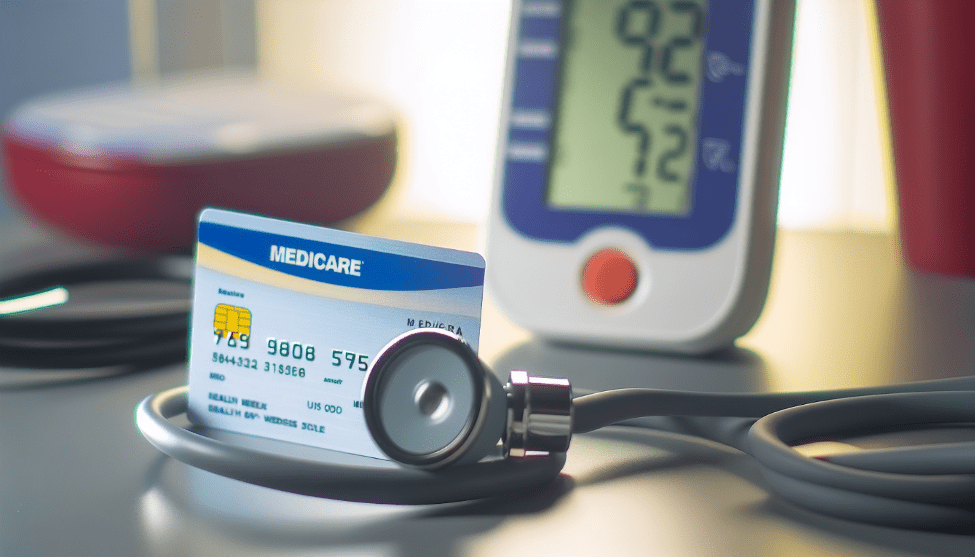How Often Will Medicare Pay for an Echocardiogram?
If you need an echocardiogram, you might wonder how often Medicare could pay for this procedure. This article will explain Medicare’s coverage for this test, focusing on the criteria for medical necessity and the absence of yearly limits, possibly offering peace of mind for those managing heart health with Medicare’s support.
Key Takeaways
- Medicare will likely cover echocardiograms when they have been deemed medically necessary, possibly without a specific limit on the number per year, but documentation must support the necessity.
- Medicare Part B will likely provide up to 80% coverage for outpatient echocardiograms after the annual deductible has been met, with patients potentially being responsible for the remaining 20% of the approved amount.
- Some of the Medicare Advantage plans may have varying rules and costs for echocardiogram coverage, and certain Medicare Supplement (Medigap) plans could potentially help reduce out-of-pocket expenses not covered by Original Medicare.
Compare Plans in One Step!
Enter Zip Code
Medicare Coverage for Echocardiograms
Medicare will likely cover an echocardiogram when they have been determined to be medically necessary by a healthcare provider. An echocardiogram is a medical imaging test that uses sound waves to create live images of the heart.
This test could provide valuable insights into the heart’s ability to pump blood, helping to identify potential heart conditions such as coronary artery disease or heart valve disease in their early stages.
However, there will likely be specific circumstances and criteria that must be met for this Medicare coverage.

Medical Necessity
For Medicare to potentially cover the cost of an echocardiogram, the following criteria must be met:
- The procedure must be ordered by a doctor
- The procedure must be deemed medically essential
- Medicare bases its decision on the assessment of the treating physician
- The healthcare provider must accept the Medicare assignment.
A physician may request an echocardiogram to diagnose various heart conditions, such as blood clots, or to assess the heart’s pumping function. Bear in mind that Medicare has the right to deny coverage for an echocardiogram if it’s not considered medically necessary.
Therefore, the patient’s medical record must provide documentation that the coverage criteria have been satisfied for Medicare to pay for the procedure.
Possible Frequency Limitations
There may be no specific limit imposed by Medicare on the number of echocardiograms covered per year, provided they have been considered medically necessary. If an echocardiogram has been prescribed during a hospital stay (inpatient setting) or at a skilled nursing facility, it will likely fall under Medicare Part A. If it has been conducted as an outpatient test, it may be covered by Medicare Part B.
The determination of the medical necessity for frequent echocardiograms under Medicare might involve evaluating whether there is a suitable utilization of TTE, including stress echocardiography, and the presence of specific ICD-10-CM codes that may justify the medical necessity for the procedure. Members may want to ensure that their provider accepts the Medicare assignment.
Types of Echocardiograms
There are two main types of echocardiograms. These are transthoracic and transesophageal. These classifications could help diagnose heart conditions such as heart valve disease.
Echocardiograms generate images that enable physicians to observe the heart’s structure and function, including the effectiveness of blood pumping, the status of the heart valves, and the motion of the heart’s chambers.

An EKG, on the other hand, may be used to detect irregularities in the heart’s electrical activity by using electrodes.
It primarily evaluates the heart’s rhythm and electrical conduction. While an EKG could reveal valuable information about the heart’s electrical activities, an echocardiogram will likely offer a comprehensive assessment of heart function and structural issues using ultrasound for heart visualization. Medicare might pay for both tests if they have been deemed medically necessary.
Medicare Part B Coverage
Medicare Part B will likely cover up to 80% of the expenses related to outpatient echocardiograms, once the annual deductible has been met. When this deductible is met, the patient may become accountable for the remaining 20% of the Medicare-approved amount for an echocardiogram.
The Medicare-approved amount refers to the maximum charge that a healthcare provider could bill for a specific service. In the case of echocardiograms, patients may cover up to 20% of this approved amount once they have met the Medicare Part B deductible.
Medicare Advantage Plans
Medicare Advantage plans, provided by private insurance companies, could offer an alternative to Original Medicare.

These Medicare Advantage plans will likely cover all aspects of Original Medicare (Part A and Part B), which may include echocardiograms in an inpatient or outpatient setting. Individual plans, however, may have different rules, costs, and possible limitations, so it may be necessary to consult with your plan provider to comprehend the specifics of your echocardiogram coverage.
Original Medicare and Medicare Advantage plans may both offer coverage for echocardiograms. However, the potential out-of-pocket costs may vary. Possible factors like plan deductibles, copayments, and coinsurance rates may influence the total cost borne by the beneficiary.
Not all Medicare Advantage Plans may provide the same coverage for echocardiograms. Each plan may have its specific terms for the coverage of echocardiograms.
Both Medicare and Medicare Advantage plans will likely cover echocardiograms when they have been deemed medically necessary. However, the specifics related to pre-authorizations, network restrictions, and provider choices may vary from one plan to another.
Potentially Reducing Out-of-Pocket Expenses
Medicare Supplement plans, also known as Medigap, might help lower out-of-pocket expenses for echocardiograms by potentially covering some or all of the remaining 20% that Medicare Part B does not cover, possibly making Medicare pay for a larger portion of the cost.
There will likely be many distinct categories of Medicare Supplement plans, which may be denoted by letters like A-D, F, G, and K-N. The coverage for echocardiograms may differ across these plans, but all will likely be designed to supplement Medicare coverage.
Additional Heart Tests and Medicare Coverage
Medicare may also provide coverage for supplementary heart examinations, including:
- EKGs
- Stress tests
- Blood tests
- Chest x-rays
- Other tests
These tests may be covered when they have been considered medically necessary by a healthcare provider.
Medicare may also cover specific heart tests such as:
- A cardiac CT scan, which is a specialized X-ray used to obtain detailed heart images
- Cardiac catheterization, an invasive procedure utilized for diagnosing or treating heart conditions
- Nuclear heart scans assess blood flow and reveal the heart’s condition using a small amount of radioactive substance
- Stress tests that measure heart performance under exercise-induced stress
- Holter monitors, which record the heart’s electrical activity over extended periods

Medicare will likely provide coverage for the potential cost of these additional heart tests if a healthcare provider has deemed them medically necessary for the diagnosis, treatment, or management of a heart-related issue.
Medicare Part B may also cover the expenses that could be associated with heart monitoring devices such as Holter monitors, event monitors, or loop recorders, given that they have been proven to be essential for the diagnosis or management of heart conditions.
Monitoring Your Heart Health
Regular monitoring could be vital in the early detection of heart problems, which could lead to more effective treatment. It may also help in identifying modifiable risk factors to potentially lower the risk of heart disease.
Collaborating with a healthcare provider for regular monitoring could potentially ensure that you receive the necessary Medicare-covered tests and treatments.

Some of the common indications that might prompt regular monitoring of heart health may comprise:
- Chest pain
- Fainting
- Fatigue
- Irregular heartbeat
- Shortness of breath
- Swollen feet or ankles
If deemed medically necessary, Medicare may pay for these tests.
Generally, it will likely be advised for adults to have a heart health checkup annually as a part of their routine medical examinations with a healthcare professional. Medicare may also cover these checkups if they have been deemed medically necessary.
Summary
This article has navigated the complexities of Medicare and its potential coverage for echocardiograms and other heart tests. Medicare will likely play a crucial role in supporting beneficiaries in maintaining their heart health, possibly covering a wide range of tests when they have been deemed medically necessary.
However, it is important to understand that coverage may vary based on the specifics of each patient’s case, the type of Medicare plan, and whether the healthcare provider accepts Medicare assignment.
Regular monitoring, early detection, and treatment of potential heart issues could make a stark difference in outcomes. Members may want to collaborate with your healthcare provider and ensure they understand their Medicare coverage to take full advantage of these life-saving tests.
Frequently Asked Questions
→ Does Medicare pay for an echocardiogram?
Yes, Medicare will likely cover echocardiograms if they have been deemed medically necessary and if the healthcare provider accepts Medicare assignment. However, there may be out-of-pocket costs involved for the individual, regardless of whether they have original Medicare or Medicare Advantage.
→ How often should you have an echocardiogram?
You should have an echocardiogram every 6 to 12 months or sometimes sooner as monitoring may be necessary for an existing heart condition. Schedule regular check-ups to monitor your heart health effectively.
→ Does Medicare cover a yearly ECG?
Yes, Medicare may also cover a yearly ECG, with Part B possibly providing coverage at about 80% and the patient will likely be responsible for the remaining 20% after meeting the deductible.
→ What types of echocardiograms could Medicare cover?
Medicare will likely cover two main types of echocardiograms: transthoracic and transesophageal. You could learn more about the coverage by contacting Medicare directly.

ZRN Health & Financial Services, LLC, a Texas limited liability company
Russell Noga is the CEO of ZRN Health & Financial Services, and head content editor of several Medicare insurance online publications. He has over 15 years of experience as a licensed Medicare insurance broker helping Medicare beneficiaries learn about Medicare, Medicare Advantage Plans, Medigap insurance, and Medicare Part D prescription drug plans.



